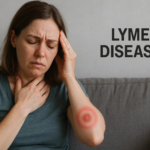Cancer is one of the most feared diseases, but what if I told you your body is already fighting off microscopic cancers every single day? The truth is, your body has built-in defense systems that protect you—and the foods you eat can either strengthen or weaken those defenses. This article will dive deep into how …
Cancer is one of the most feared diseases, but what if I told you your body is already fighting off microscopic cancers every single day? The truth is, your body has built-in defense systems that protect you—and the foods you eat can either strengthen or weaken those defenses.
This article will dive deep into how cancer forms, how your body fights it, and what you can do—especially through diet and lifestyle—to enhance your body’s natural ability to prevent and fight cancer. With modern life throwing more stressors and toxins at us than ever before, understanding and supporting your body’s defenses has never been more important.
Your Body’s Natural Cancer Defense
Your body is made up of roughly 40 trillion cells, and every day, those cells need to replicate. During this process, about 10,000 mistakes happen every 24 hours. Each of these small errors in DNA replication has the potential to become a microscopic cancer. Think of them as little landmines scattered throughout your tissues. Fortunately, your immune system is like a patrol team that detects and disarms these threats before they become dangerous.
The immune system isn’t working alone. Other systems like your circulatory system, your detox pathways, and even your gut microbiome play roles in regulating and protecting your cells from turning into disease. When everything is in balance, your body is surprisingly effective at preventing cancer. But when that balance is disrupted, problems can arise quickly.
What Weakens Your Defenses?
Here are the most common ways we unintentionally sabotage our body’s ability to keep cancer at bay:
Processed Foods & Excess Sugar
Highly processed foods and added sugars are among the biggest contributors to chronic inflammation. Chronic inflammation is like fuel for cancer cells. It disrupts immune surveillance, allowing abnormal cells to grow and spread. While natural sugars in fruits come with fiber and nutrients, added sugars in sodas, pastries, and snacks hit your system fast and hard, spiking insulin levels and stressing your body.
Too Much Salt
Sodium is essential for life, but in excess, it becomes harmful. Restaurant meals and packaged foods often contain very high levels of sodium. Chronic high sodium intake is linked to high blood pressure and accelerated cellular aging. It also damages blood vessels and impairs angiogenesis (your body’s control of blood vessel growth), which is critical in keeping tumors from forming their own blood supply.
Alcohol
Alcohol is widely accepted socially, but even small amounts have been shown to disrupt liver function, weaken immunity, and increase levels of inflammation in the body. While some people point to red wine for its antioxidant benefits, it’s the polyphenols from grapes (not the alcohol) that offer the health boost. Alcohol itself is classified as a carcinogen by the World Health Organization.
Microplastics
One of the most disturbing discoveries in recent years is the presence of microplastics in our bodies. Found in food packaging, tea bags, water bottles, and even in the air we breathe, microplastics have been found embedded in the brain, lungs, blood vessels, and reproductive organs. These plastics may carry chemical additives or other environmental toxins that increase inflammation and stress the immune system.
Chronic Stress & Poor Sleep
Stress affects your body on multiple levels. It releases hormones like cortisol and adrenaline that can suppress immune function and promote inflammation. Sleep, on the other hand, is when your body repairs itself. During deep sleep, your brain activates the glymphatic system—a kind of sewer system that clears out toxins that build up during the day. Without adequate sleep, these toxins accumulate, impairing brain function and immune defense.
Foods That Strengthen Your Defenses
Let’s explore the foods scientifically proven to enhance your body’s cancer-fighting abilities:
1. Green Tea & Matcha
Both are rich in catechins, powerful antioxidants that reduce inflammation and support immune function. Matcha, made from powdered whole tea leaves, delivers even more of these cancer-fighting compounds. Studies show that polyphenols in green tea can kill cancer stem cells, especially in breast tissue. Skip the tea bags—they often shed microplastics. Use loose leaf tea or matcha powder.
2. Tomatoes (Cooked)
Tomatoes are high in lycopene, an antioxidant known to inhibit cancer cell growth. Lycopene becomes more bioavailable when tomatoes are cooked. Regular consumption of cooked tomatoes has been linked to a lower risk of prostate cancer, and it may also reduce risk for other hormone-sensitive cancers.
3. Purple Potatoes
These vibrant vegetables are packed with anthocyanins, compounds that give them their rich color and have been shown to kill colon cancer stem cells. They also support healthy gut bacteria and reduce inflammation.
4. Pomegranate & Cranberries
Both fruits are rich in antioxidants and help support a gut bacterium called Akkermansia muciniphila, which plays a critical role in improving immune response and enhancing the effectiveness of immunotherapy treatments. A strong gut-immune axis is key in fighting cancer.
5. Coffee
Coffee has long been misunderstood, but when consumed in moderation, it can be highly beneficial. It stimulates brown fat, which helps burn visceral fat—the type of fat most associated with chronic disease. Coffee also supports liver detoxification and is linked to lower rates of liver and colorectal cancer.
6. Garlic & Onions
Members of the allium family, garlic and onions contain sulfur compounds that enhance immune response and help the body detoxify. Studies have shown that these compounds slow or prevent the growth of various cancer cells.
7. Berries
Strawberries, blueberries, and blackberries are loaded with antioxidants and phytochemicals that protect cells from damage. They also reduce inflammation and improve blood vessel function.
8. Cruciferous Vegetables
Broccoli, cauliflower, Brussels sprouts, and kale contain compounds like sulforaphane that activate detox enzymes and have been shown to reduce the risk of several types of cancer.
9. Turmeric
Curcumin, the active compound in turmeric, is a potent anti-inflammatory that may inhibit cancer cell growth and prevent the spread of tumors. It works even better when combined with black pepper, which enhances absorption.
10. Fermented Foods
Foods like sauerkraut, kimchi, kefir, and yogurt support gut health by populating your microbiome with beneficial bacteria. A healthy gut microbiome supports your immune system and reduces systemic inflammation.
Simple Changes for Long-Term Health
Beyond food, a few consistent lifestyle changes can dramatically reduce your risk:
- Switch to glass or ceramic containers to avoid microplastic exposure.
- Prioritize sleep—Aim for 7-9 hours of uninterrupted, high-quality sleep per night.
- Move your body daily—Walking, stretching, strength training, or yoga all count.
- Choose real, whole foods—Focus on ingredients, not labels.
- Practice stress relief—Meditation, journaling, spending time in nature, or connecting with loved ones.
The Future of Cancer Treatment
Science is moving fast. Breakthroughs in immunotherapy, which uses your immune system to target cancer, have shown tremendous success. In some cases, patients with late-stage cancer have gone into complete remission without traditional chemotherapy. But here’s the key: your immune system must be in good shape to respond to these treatments. That’s where lifestyle, diet, and environmental health come in.
Research is even exploring personalized cancer vaccines, where your own immune system is trained to recognize and destroy cancer cells based on your unique genetic makeup. These therapies are still in development but show incredible promise.
Final Thought
You don’t have to wait for a diagnosis to take action. You can start building a stronger, more resilient body today. Cancer prevention isn’t about one magic bullet—it’s about consistent daily choices that stack up over time.
Every meal is a chance to support your health. Every night of good sleep is a step toward recovery. Every moment spent managing stress is an investment in your future.
Take control. Empower your immune system. Let food and lifestyle be your first line of defense.
Would you like a simple meal plan incorporating these cancer-fighting foods? Let us know!
Stay healthy, stay informed.
(Sources: Dr. William Li’s research, Harvard Medical School, Nature Journal studies on angiogenesis and cancer.)





